You might have seen people in the gym lying on the ground and standing up with a weight. Don’t let them fool you; this is not as easy as it looks. This is a movement that has been around since the strongman days, and there is a reason it hasn’t left. The Turkish get-up (TGU) is a total-body workout that everyone should try. Here are five reasons I think you should try it.
- Stability. The TGU promotes shoulder stability along with core stability. If you cannot maintain either, you will not be successful when increasing weight. Before you even add weight to the TGU, you should be able to do the exercise while balancing your shoe (or something similar) on your fist when completing the get-up without it falling off. Once you can be stable enough to balance the shoe throughout, keeping your arm straight, you are stable enough to add weight.
- Hits every movement plane. During your workouts, your goal should always be to train in every plane. When doing the TGU, you can hit every plane. You are in frontal, sagittal, and transverse—there aren’t many moves that enable you to hit all three at once.
- Works your core. The TGU effectively trains the core in more than one area. Your entire trunk has to fire in order to maintain stability throughout the movement.
- Cardio. Once you start to lift a heavier kettlebell, the TGU can become taxing on your cardiovascular system. Even though you are making small, controlled movements, your heart rate increases.
- Everything is working! The TGU is a total-body movement. You work your shoulders, legs, and core—strength and mobility/flexibility. If you are short on time and can get in only a few strength exercises, this is one you should do.
Don’t knock the TGU until you try it. This is a challenging and effective exercise that everyone should add to their routines. If you need any help on form, stop by the track desk and have a NIFS HFS help you out!
This blog was written by Kaci Lierman, NSCA-CPT, CFSC, NASM-CES,CAFS, personal trainer. To learn more about the NIFS bloggers, click here.


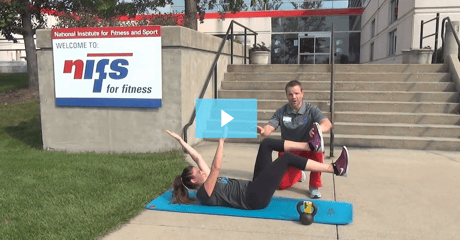
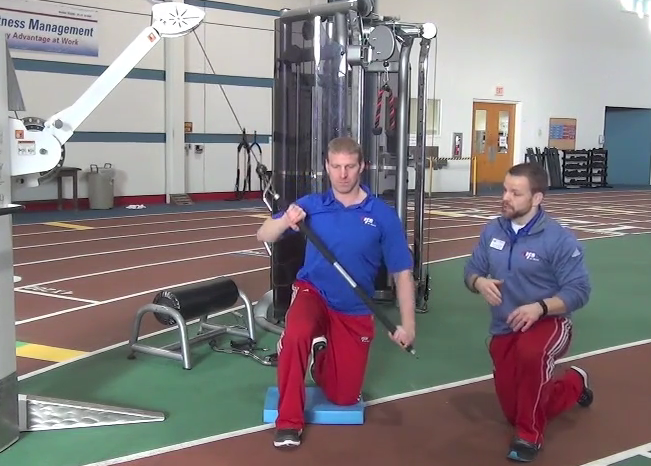 Chops
Chops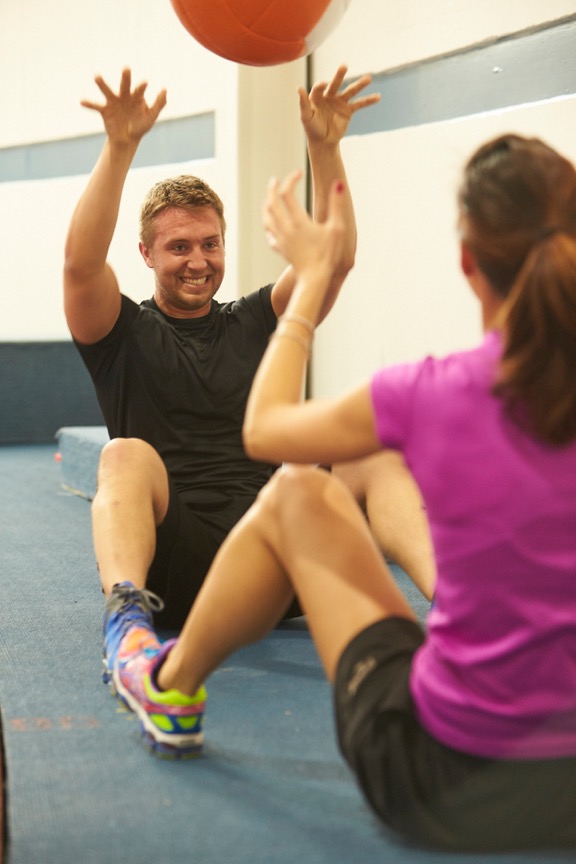 When it comes to working out, the first weeks are usually great. You are excited to get to the gym, and you love the feeling of exercising. Once the “honeymoon” stage of your new workout routine is over, it gets more challenging to get to the gym:
When it comes to working out, the first weeks are usually great. You are excited to get to the gym, and you love the feeling of exercising. Once the “honeymoon” stage of your new workout routine is over, it gets more challenging to get to the gym:  We have all seen people in the gym just walking around carrying weights such as kettlebells, dumbbells, and maybe even sandbags. It may look easy since they are just walking, but carries are a complex exercise that, when you give it a try, you will realize are actually pretty challenging. Don’t knock them until you’ve tried them!
We have all seen people in the gym just walking around carrying weights such as kettlebells, dumbbells, and maybe even sandbags. It may look easy since they are just walking, but carries are a complex exercise that, when you give it a try, you will realize are actually pretty challenging. Don’t knock them until you’ve tried them! It’s coming…the holiday season! Many people tend to give up or have the “I’ll start fresh next year” mindset when it comes to exercise around the holidays. Don’t let that be you this year! Halloween is over and before we know it Thanksgiving and Christmas will be here. Parties will start, normal schedules will be crazy, and more food will be added to your life.
It’s coming…the holiday season! Many people tend to give up or have the “I’ll start fresh next year” mindset when it comes to exercise around the holidays. Don’t let that be you this year! Halloween is over and before we know it Thanksgiving and Christmas will be here. Parties will start, normal schedules will be crazy, and more food will be added to your life.
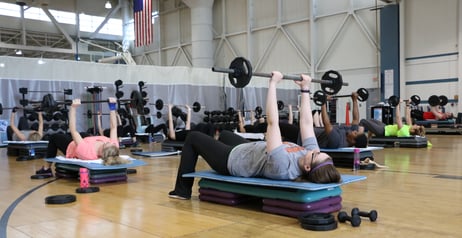

 Busy college schedule? No time to fit in your workout between exams, papers, and class? Don’t let school be the excuse to skip or miss your workout. According to
Busy college schedule? No time to fit in your workout between exams, papers, and class? Don’t let school be the excuse to skip or miss your workout. According to 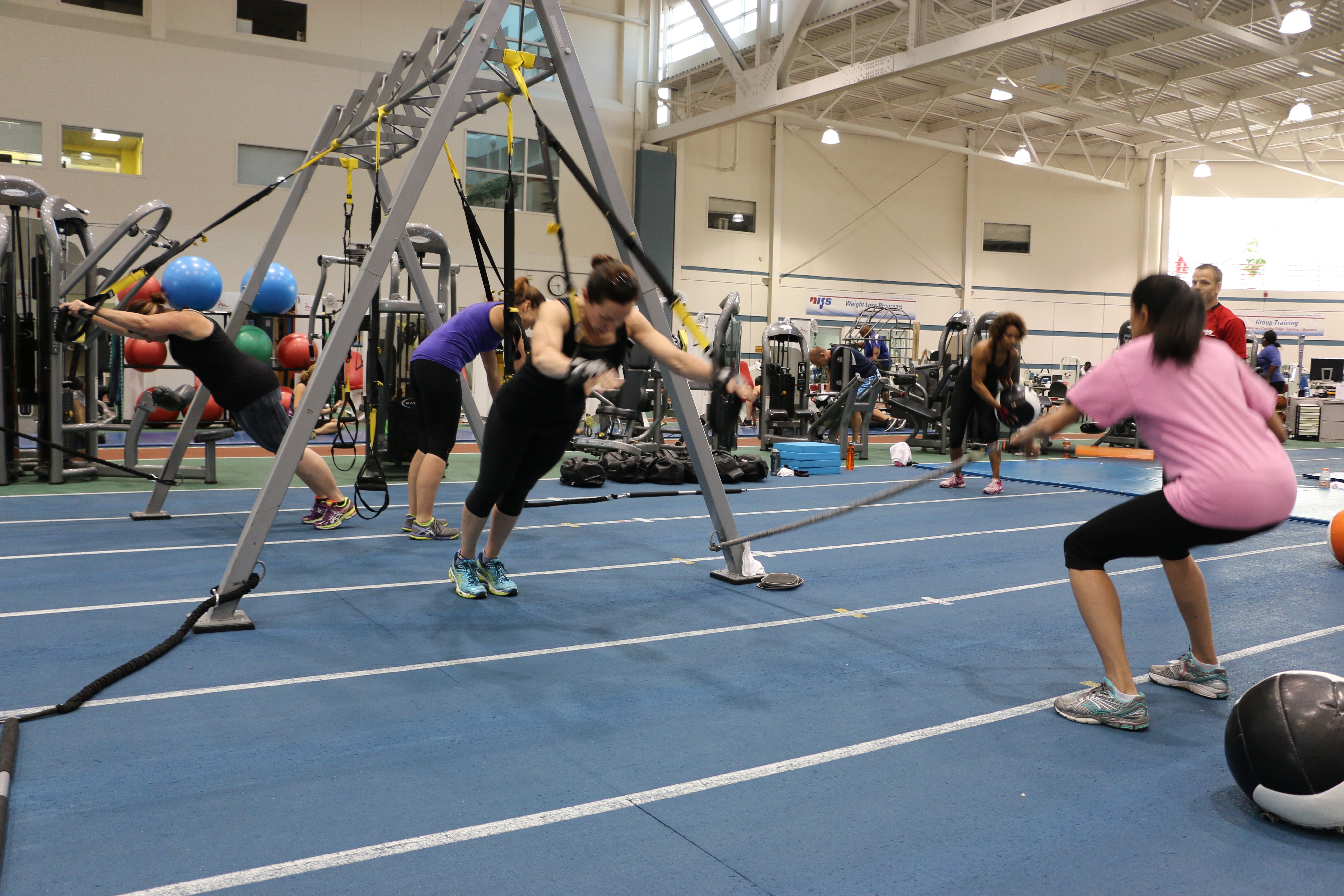 Have you ever wanted to try out
Have you ever wanted to try out 
 Here are four exercises you should do if you don’t have time to do your usual routine:
Here are four exercises you should do if you don’t have time to do your usual routine:
 The weather is getting warmer; people are starting to take their running from the treadmill to the streets and training for upcoming spring races. With the warmer weather comes endless options for races to run and events to participate in. Maybe you are up for a new fitness challenge this year, a type of race that you have never tried before.
The weather is getting warmer; people are starting to take their running from the treadmill to the streets and training for upcoming spring races. With the warmer weather comes endless options for races to run and events to participate in. Maybe you are up for a new fitness challenge this year, a type of race that you have never tried before.